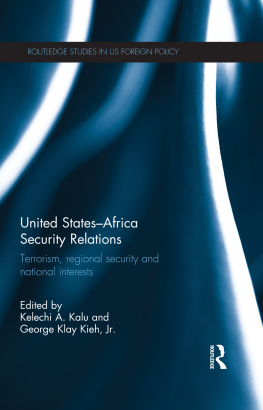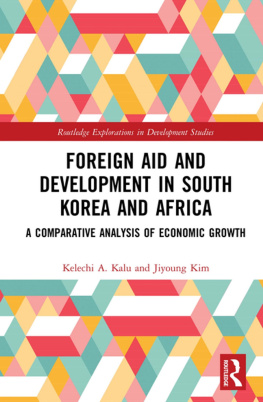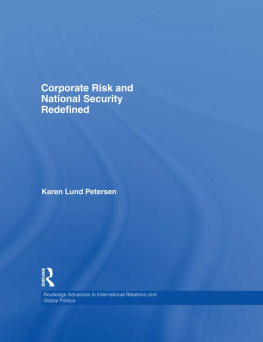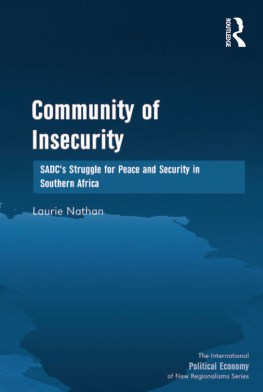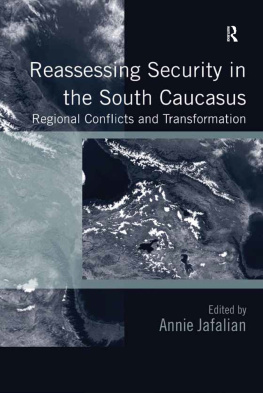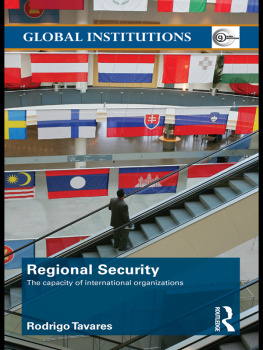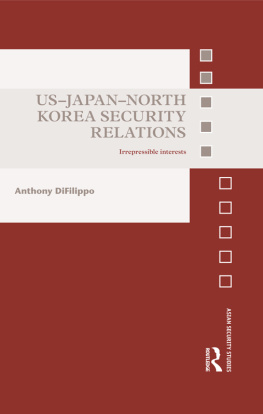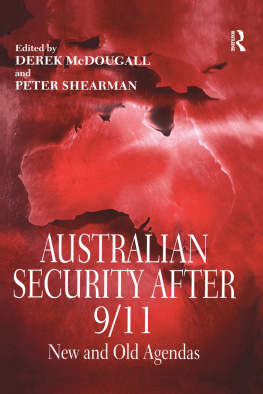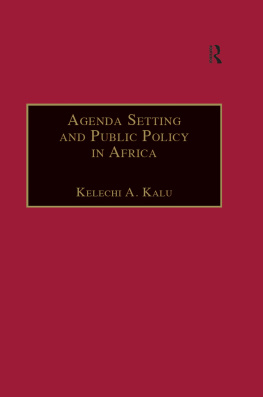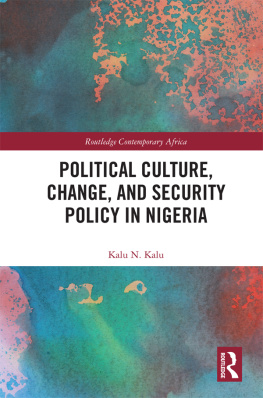United StatesAfrica Security Relations
United States-Africa relations have experienced four major cycles. The first cycle was during the Cold War (196090). During this period, the U.S. developed a one-sided relationship with various African states in which the latter served as foot soldiers for the U.S. in its competition with the Soviet Union for global domination. Among other things, the various client African states provided the U.S. with access to airfields, deep water ports, and sites for the establishment of various intelligence-gathering facilities. In addition, the U.S. used various groups like UNITA led by Jonas Savimbi in Angola to undermine and fight pro-Soviet regimes on the continent.
The second cycle of the relationship covered the period 19918. During this time, the U.S. scaled down its security activities in Africa. The major reason was that with the end of the Cold War, Africa (with few exceptions like Egypt) was no longer a major front for the promotion of U.S. security interests.
The third cycle commenced in 1998 and ended in 2001. This period was characterized by the U.S.s search for an approach to frame its security relations with Africa. In this vein, the U.S. undertook various military-security initiatives.
The fourth cycle began after the 9/11 terrorist attacks against the American homeland. Since then, the U.S. has expanded the scope of its security relations with Africa, as reflected in the establishment of various initiatives and programs. At the core is the prosecution of the American war on terror.
Against this backdrop, this book examines some of the major dimensions of the U.S.s security relations with Africa, including American security interests on the continent, the war on terror, AFRICOM, and military cooperation. Using the books integrative theoretical framework, each of the chapters in the volume examines the various factors that shape the issue of focus.
Kelechi A. Kalu is Associate Provost for Global Strategies and International Affairs and Mershon Center affiliate at The Ohio State University, U.S.
George Klay Kieh, Jr. is Professor of Political Science and former Dean of the College of Arts and Sciences at the University of West Georgia, U.S.
Routledge Studies in US Foreign Policy
Edited by: Inderjeet Parmar, City University and John Dumbrell, University of Durham
This new series sets out to publish high quality works by leading and emerging scholars critically engaging with United States Foreign Policy. The series welcomes a variety of approaches to the subject and draws on scholarship from international relations, security studies, international political economy, foreign policy analysis and contemporary international history.
Subjects covered include the role of administrations and institutions, the media, think tanks, ideologues and intellectuals, elites, transnational corporations, public opinion, and pressure groups in shaping foreign policy, US relations with individual nations, with global regions and global institutions and Americas evolving strategic and military policies.
The series aims to provide a range of books from individual research monographs and edited collections to textbooks and supplemental reading for scholars, researchers, policy analysts, and students.
United States Foreign Policy and National Identity in the 21st Century
Edited by Kenneth Christie
New Directions in US Foreign Policy
Edited by Inderjeet Parmar,
Linda B. Miller and Mark Ledwidge
Americas Special Relationships
Foreign and domestic aspects of the politics of alliance
Edited by John Dumbrell and Axel R. Schfer
US Foreign Policy in Context
National ideology from the founders to the Bush doctrine
Adam Quinn
The United States and NATO since 9/11
The transatlantic alliance renewed
Ellen Hallams
Soft Power and US Foreign Policy
Theoretical, historical and contemporary perspectives
Edited by Inderjeet Parmar and Michael Cox
The US Public and American Foreign Policy
Edited by Andrew Johnstone and Helen Laville
American Foreign Policy and Postwar Reconstruction
Comparing Japan and Iraq
Jeff Bridoux
Neoconservatism and American Foreign Policy
A critical analysis
Danny Cooper
US Policy Towards Cuba
Since the Cold War
Jessica F. Gibbs
Constructing US Foreign Policy
The curious case of Cuba
David Bernell
Race and US Foreign Policy
The African-American Foreign Affairs network
Mark Ledwidge
Gender Ideologies and Military Labor Markets in the U.S.
Saskia Stachowitsch
Prevention, Pre-Emption and the Nuclear Option
From Bush to Obama
Aiden Warren
Corporate Power and Globalization in US Foreign Policy
Edited by Ronald W. Cox
West Africa and the US War on Terror
Edited by George Klay Kieh and Kelechi Kalu
Constructing Americas Freedom Agenda for the Middle East
Oz Hassan
The Origins of the US War on Terror
Lebanon, Libya and American intervention in the Middle East
Mattia Toaldo
US Foreign Policy and the Rogue State Doctrine
Alex Miles
US Foreign Policy and Democracy Promotion
From Theodore Roosevelt to Barack Obama
Edited by Michael Cox, Timothy J. Lynch and Nicolas Bouchet
Local Interests and American Foreign Policy
Why international interventions fail
Karl Sandstrom
The Obama Administrations Nuclear Weapon Strategy
The promises of Prague
Aiden James Warren
Obamas Foreign Policy
Ending the War on Terror
Michelle Bentley and Jack Holland
United StatesAfrica Security Relations
Terrorism, regional security and national interests
Edited by Kelechi A. Kalu and George Klay Kieh, Jr.
First published 2014
by Routledge
2 Park Square, Milton Park, Abingdon, Oxon OX14 4RN
and by Routledge
711 Third Avenue, New York, NY 10017
Routledge is an imprint of the Taylor & Francis Group, an informa business
2014 Kelechi A. Kalu and George Klay Kieh, Jr. selection and editorial matter. Individual contributions, the contributors.
The right of Kelechi A. Kalu and George Klay Kieh, Jr. to be identified as editors of this work has been asserted by them in accordance with the Copyright, Designs and Patent Act 1988.
All rights reserved. No part of this book may be reprinted or reproduced or utilised in any form or by any electronic, mechanical, or other means, now known or hereafter invented, including photocopying and recording, or in any information storage or retrieval system, without permission in writing from the publishers.
Trademark notice: Product or corporate names may be trademarks or registered trademarks, and are used only for identification and explanation without intent to infringe.
British Library Cataloguing in Publication Data
A catalogue record for this book is available from the British Library
Library of Congress Cataloging in Publication Data
United states - Africa security relations : terrorism, regional security and national interests / edited by Kelechi A. Kalu and George Klay Kieh, Jr. First edition.

